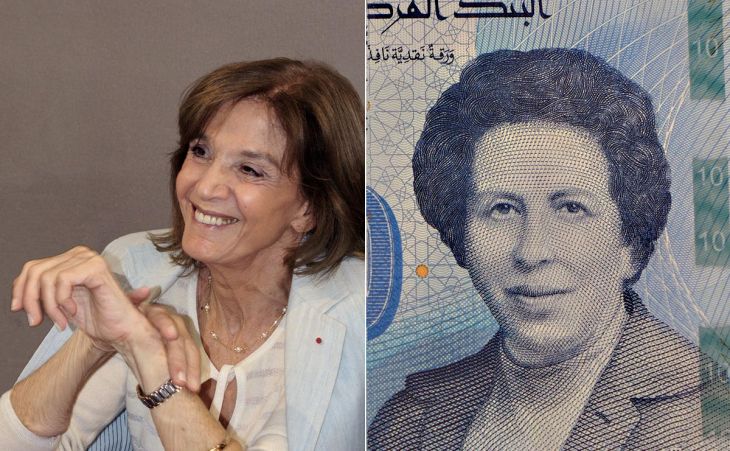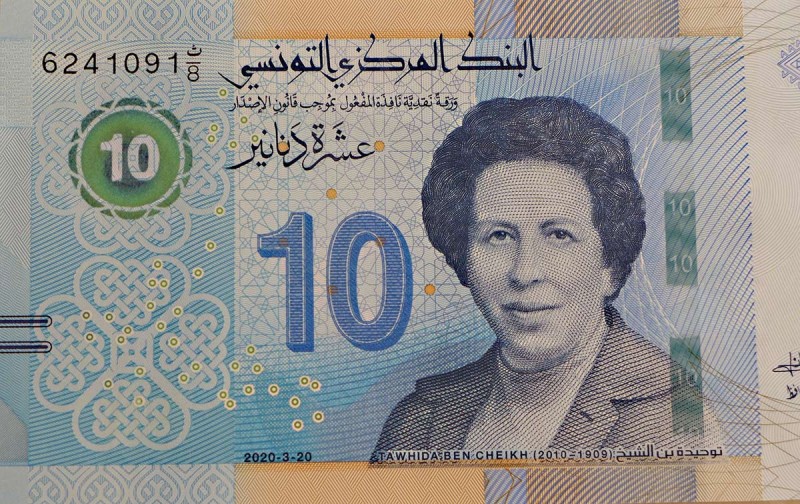Gisèle Halimi, who disappeared on July 28, and Tawhida Ben Cheikh, whose portrait adorns a banknote this year, symbolize a generation of Tunisian women who fought to be equal to men.
Each year, on
August 13, Tunisia commemorates the promulgation by Bourguiba of the
Personal Status Code of 1956, legislation in favor of women without equivalent to this day in the Arab world.
This was only the first step in a policy that mainstreamed birth control and girls’ education.
An evolution that responded to the deep aspirations of a generation of women.
Gisèle Halimi, a lawyer for women’s rights
Nothing destined Gisèle Halimi to become a famous lawyer and activist in France. Born in 1927 into a Tunisian Jewish family in La Goulette near Tunis, little Zeïza Gisèle Elise Taïeb should have married at 14 and lived the reclusive life of many women of her time.
As she has often said, her birth was experienced by her father as a disaster. Indeed, in this poor and conservative environment, a girl represented a burden, a mouth to feed and a source of worry.
22 years later, however, she enrolled as a lawyer at the Tunis Bar.
She had to fight every inch of the way to get, first of all, to enroll in the Lycée Armand-Fallières, a high school for young girls in colonized Tunisia.
Then she managed, at only 18, to go to Paris to continue her studies. A challenge, for a teenage girl of this time.
If she finally chose France, it is, she will say later, the consequence of the cultural split linked to the colonial system ... A colonial system that she will fight by becoming one of the lawyers of the Algerian FLN (National Liberation Front).
It was in France that she rose to fame as a women’s rights activist, pushing forward legislation through high profile trials. In particular, she will pave the way for the legalization of abortion in France in 1975.
Tawhida Ben Cheikh, doctor and activist
Even earlier than Gisèle Halimi, Tawhida Ben Cheikh was the first Tunisian woman to obtain a doctorate in medicine in 1936: a time where only a few women were able to do the same.
It took her mother’s stubbornness to do that. It was she who indeed succeeded in getting her to pursue studies in France, despite the reluctance of the paternal family, which ensured her guardianship after the death of her father.
Born in 1909 into a well-to-do family, the young Tawhida was a brilliant student. She graduated in 1928 and attracted the attention of the French doctor Etienne Burnet, future director of the Institut Pasteur in Tunis, who encouraged her to engage in medical studies.
Back in Tunisia, she took over the management of a women’s magazine created before independence, ‘Leïla’, previously run by men.
She then decided to get involved in improving the lot of women in her country. She will become a gynecologist, then a tireless promoter of the limitation of births.
She was head of service in Tunisian hospitals – she created the first family planning service there in 1963 – then director of family planning at the Ministry of Health. She campaigned for the right to abortion, obtained in Tunisia in 1973 (two years before France and long before many European countries).
Above all, she is remembered as a humble benefactor who was close to the people, active in multiple institutions: the Red Crescent, associations in favor of mothers and young girls ...
Girls’ education and birth control: a Tunisian specificity
Today, many Tunisians tell how their mothers or grandmothers discovered the happiness of going to school, often thanks to the hard support of their own mother. Or on the contrary, the frustration of those who had been deprived of it.
Many also know how the introduction of family planning has changed the lives of these women.
The fiery Gisele and the discreet Tawhida both symbolize the conquest of education and freedom by the women of this period.
Tawhida Ben Cheikh on the new 10 dinar banknote

